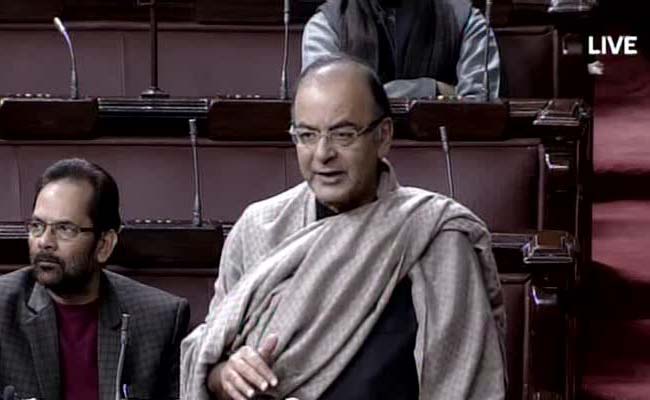
The government will introduce a constitutional amendment bill for its mega tax reform, the Goods and Services Tax, in the Lok Sabha today. But Finance Minister Arun Jaitley said in the Rajya Sabha that it would be taken up only in the Budget Session. The current session ends on Tuesday next.
Here is your 10-point cheat-sheet to the Goods and Services Tax (GST):
The GST provides a major taxation reform by introducing a national sales tax that will replace a myriad of overlapping state duties that deter investment.
The cabinet this week approved a constitutional amendment bill that paves the way for the introduction of GST.
The draft legislation will be brought to Parliament when it meets in February for its Budget Session, said Finance Minister Arun Jaitley today.
Investors and manufacturers have long advocated the GST as a way to simplify taxes while broadening the tax base, adding as much as 2 percentage points to economic growth in Asia's third-largest economy.
Some of India's 29 states were reluctant to give their assent for fear of revenue losses. The Finance Minister brokered a compromise on Monday, offering to compensate the states for any loss of revenues following the implementation of the GST.
The government aims to bring the tax into effect from April 1, 2016.
But the bill may not be cleared in this session of parliament. It could be taken up for debate in the Budget session which will begin in February.
Since the bill seeks to amend the constitution, it needs to be cleared by a two-third majority of both houses of parliament. The government will face no problem in the Lok Sabha, where it has huge numbers, but it is in a minority in the Rajya Sabha and will need the opposition's support.
The proposal will then have to be cleared by at least half of the country's state legislatures before it becomes a law.
GST will replace a number of indirect taxes currently levied by both the Central and State Governments and seeks to provide a common national market for goods and services. Once in force, GST will reduce the total number of indirect taxes apart from the customs duty (only on imported goods) to just three.

